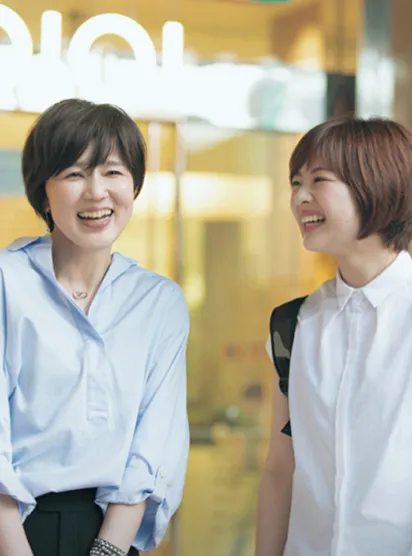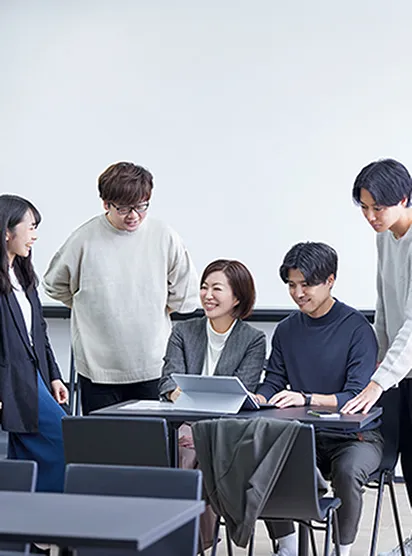Inclusive Product Development
Inclusive Product Development
MARUI GROUP views product creation as the process of developing products that match the physical characteristics of customers. We are thus establishing development and sales frameworks for supplying products that benefit all customers, excluding no one regardless of their physical characteristics. We thereby seek to create new demand.
Background of Projects
Needs Related to Shoe Sizes
The foot sizes of adult women in Japan are said to range from 20.5 cm to 26.0 cm. However, the standard range of shoe sizes offered by the Japanese apparel industry is from 22.5 cm to 24.5 cm, which covers only 72% of this range of foot sizes. With the Rakuchin Kirei series of shoes, we expanded the range of sizes we offer from 7 sizes to 16 sizes, covering foot sizes from 19.5 cm to 27.0 cm, in order to accommodate customers wanting to buy shoes that were previously unable to due to their physical characteristic of having small or large feet. The Rakuchin Kirei series now covers 100% of foot sizes in Japan.
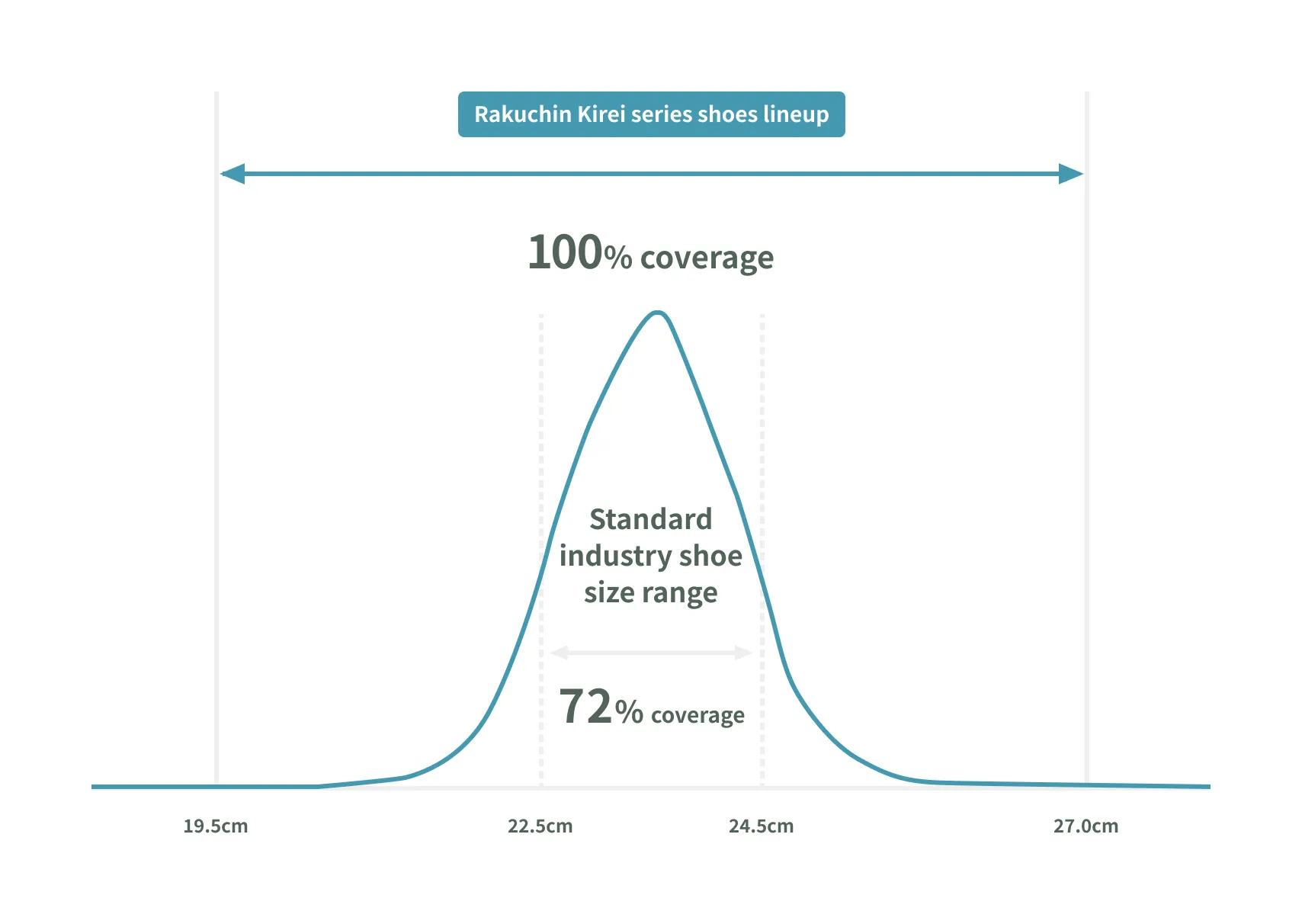
Expansion of Shoe Size Range to Cover 100% of Foot Sizes
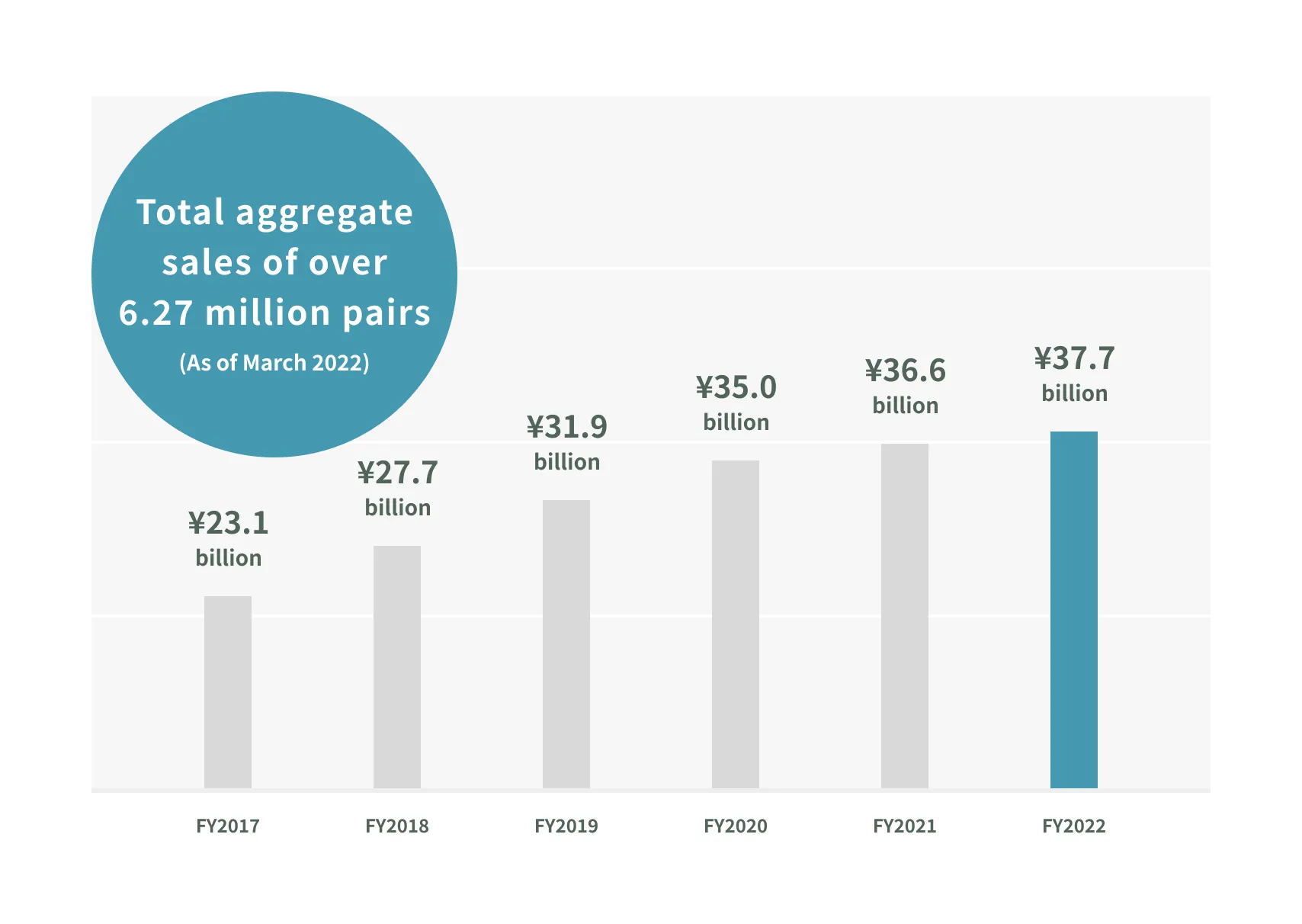
Total sales of Women's Shoes: Rakuchin Kirei Series
Customer Participation in Product Development
At the time when development of the Rakuchin Kirei series of shoes was first started, a survey of EPOS cardholders
indicated that around 90% of them had felt discomfort with their shoes. This survey made it clear that customers
were unable to find pumps satisfying all of their needs with regard to fashion, comfort, and affordability. We
thus vowed to create just such shoes. We began by measuring customers' feet and analyzing the results to make
original shoe trees. We then held product development meetings together with customers that had expressed
dissatisfaction with the comfort of their shoes.
The Rakuchin Kirei series of shoes only consists of those products able to receive qualifying scores of more than 80
points out of 100 from customers after being refined through an ongoing cycle of thinking and creating prototypes together
with customers.

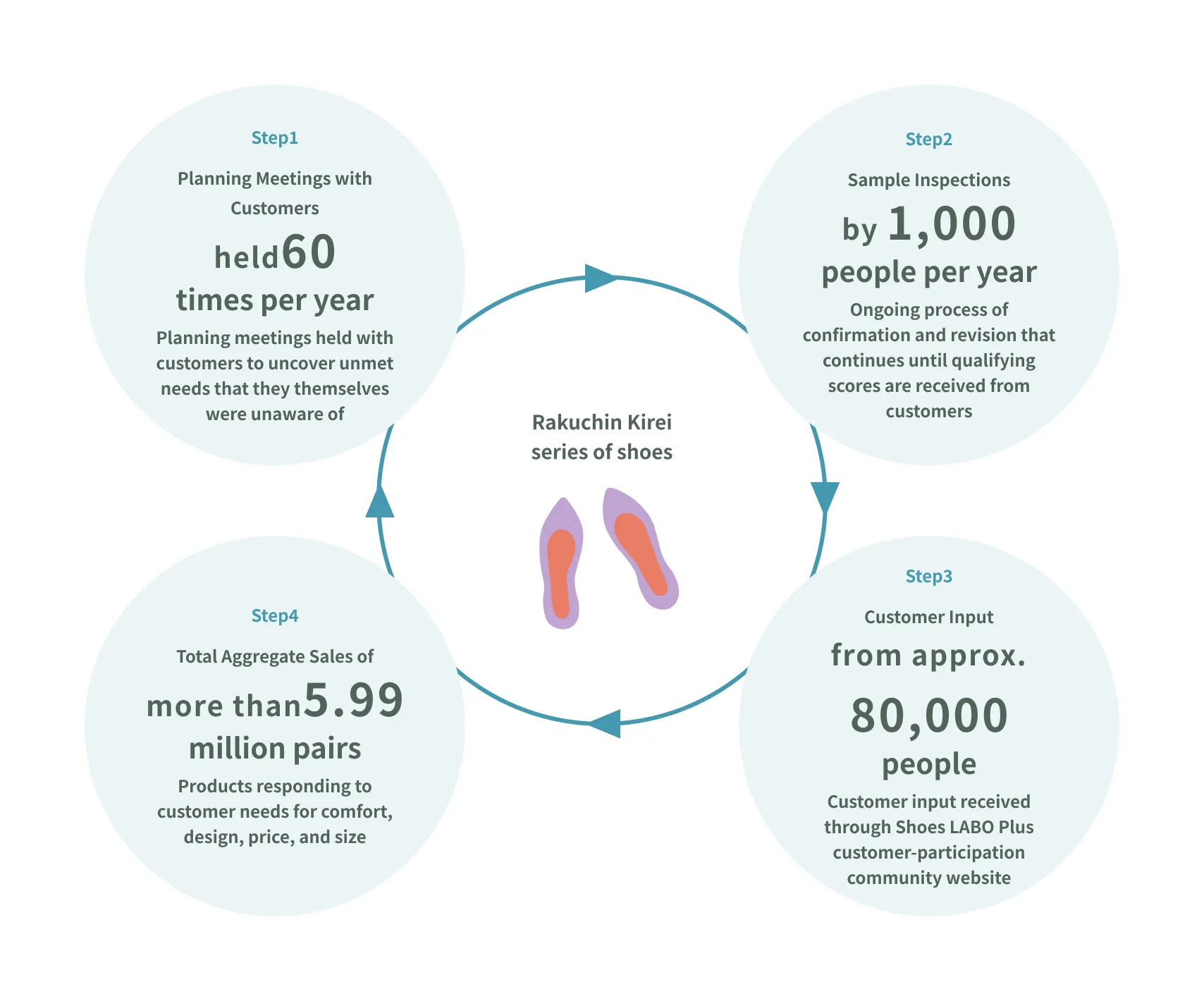
Try-on Stores
Over the period from September 2015 to September 2020, short-term try-on store events were held in non-Marui and Modi commercial facilities across Japan with the aim of bringing joy to a wider range of customers. These events allowed customers to purchase products from MARUI GROUP’s Rakuchin Kirei series of private brand products.
With sample products in the full spectrum of sizes, these try-on stores made it possible for customers to freely choose from a variety of sizes to ensure they find a perfect fit along with guaranteed comfort.
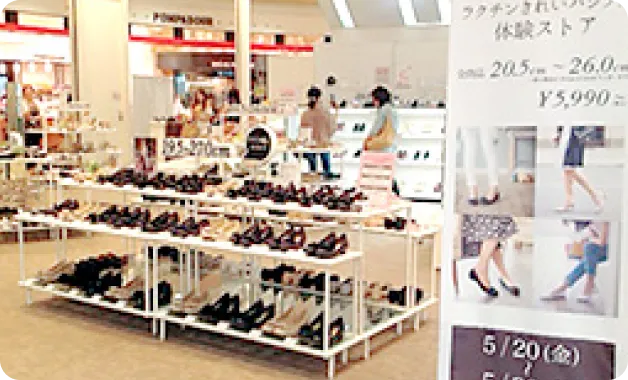
Inclusion and New Demand Creation
A large portion of customers purchasing shoes at try-on stores were buying newly introduced sizes (19.5–22.0 cm, 25.0–27.0 cm). The world is filled with people with a diverse range of physical characteristics, including small-bodied men, large-bodied women, and members of the LGBT community. In its product creation ventures, MARUI GROUP aims to provide fulfilling lifestyles for all customers while also creating products that are feasible from a business standpoint. By expanding the size ranges and improving the comfort of various products, we hope to supply products that bring joy to all customers in order to promote inclusion and create new demand.
Comparison of Sales in Marui Stores and Try-on Stores
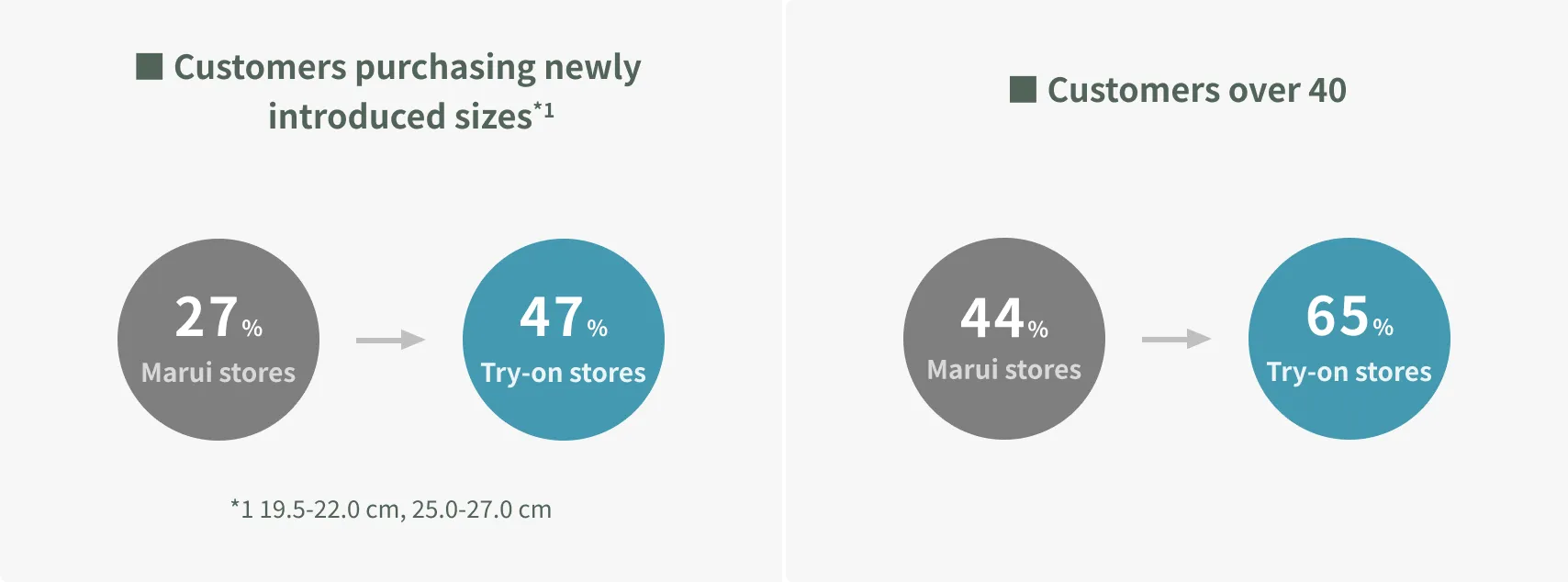
Provision of Safe and Trustworthy Products
MARUI GROUP aims to live up to the trust of its customers and continue to provide them with safe and trustworthy
products. For this reason, we have established the MARUI GROUP Quality Standards, a unique set of standards that
we expect all suppliers to adhere to.
To help customers continue using the products they purchase for as long as possible, we have established a section
on MARUI's website through which customers can view online instructional content regarding product usage as well as
information on the characteristics of materials and how they should be maintained. We thereby allow customers to access
information related to their products whenever necessary.
For Shokuyukan food sales areas, we have similarly established unique Bacteria Inspection Standards and Measure Management
Standards to guarantee the utmost quality of products sold therein.
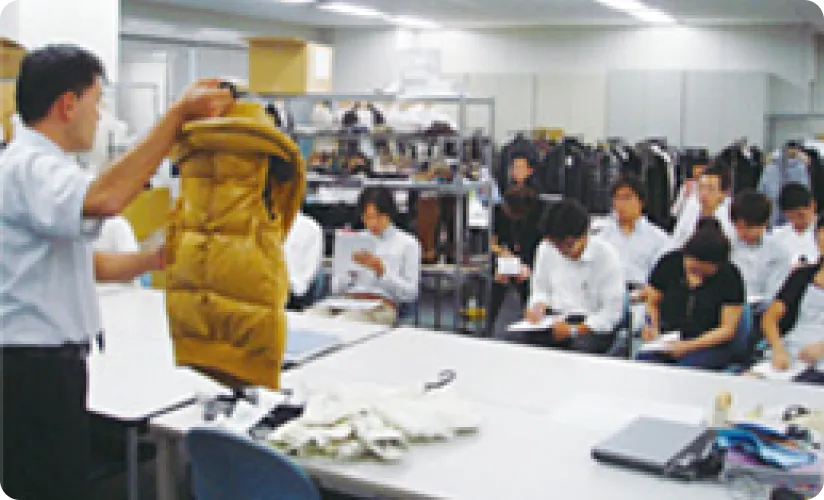
Quality inspections conducted by specialists
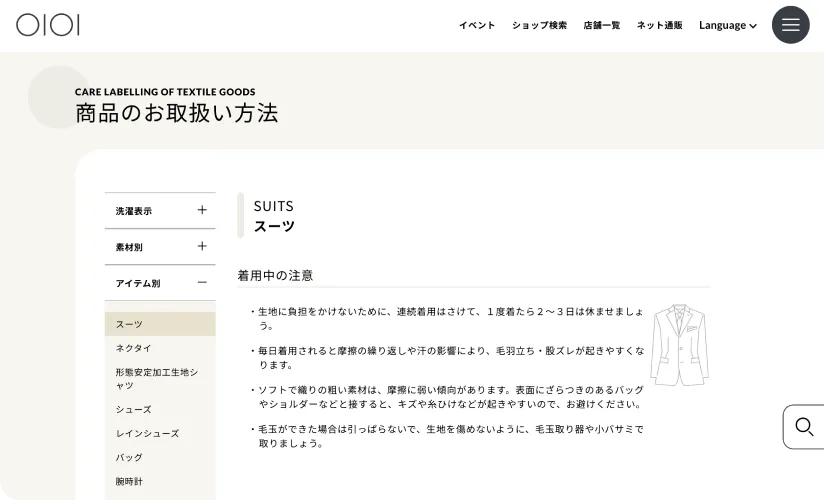
Explanation of handling methods for specific materials
Responsible Procurement Activities with Business Partners
The Marui Group Procurement Policy was formulated in April 2016 to serve as a roadmap for practicing responsible procurement together with business partners across the entire supply chain in relation to the development of private brands. To disseminate this policy, we held explanatory forums with approximately 100 partners. Surveys were then distributed and on-site investigations were conducted by dedicated staff from the Sustainability Department. The findings of these activities have been shared with partners. Moreover, based on the opinion of a third-party institution, we adopted an approach emphasizing mutual cooperation in encouraging business partners to adhere to this policy.

